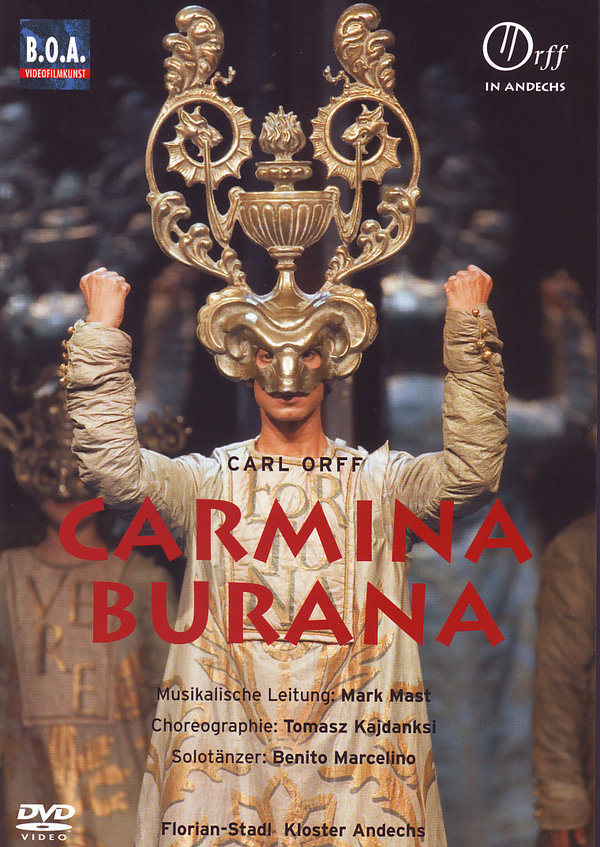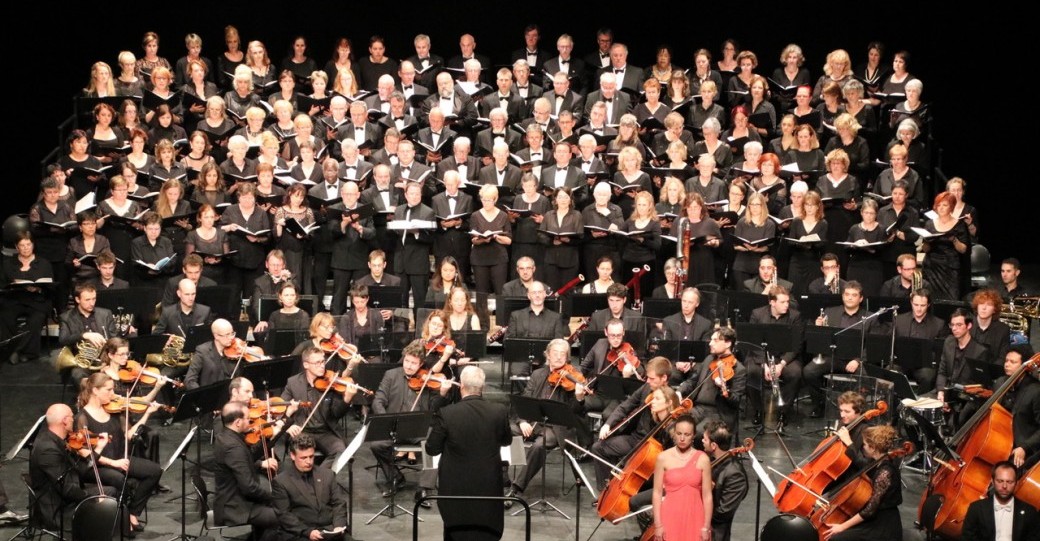

His fascination for mediaeval and classical texts was reflected in works such as his cycle Trionfi ( Carmina Burana, 1936, Catulli Carmina, 1943 and Trionfo di Afrodite, 1951), Hölderlin’s adaptations of Greek dramas Antigonae (1949) and Oedipus der Tyrann (1959) and Aischylos’ Prometheus (1967). Orff found his way to his own individual style through the study of the counterpoint of the old masters. Orff composed his first choral work (“Also sprach Zarathustra”, based on Nietzsche) and an early opera strongly influenced by Debussy entitled Gisei, das Opfer, which was completed in 1913. His aim was to combine theatre, music, dance and acting to form a single unified whole in which the rhythmical organisation of language frequently provided the compositional framework. Right from the beginning, Orff concentrated exclusively on textually related music. From 1955, he was resident in Dießen on Lake Ammer and died on 29 March 1982 in Munich. From 1950 to 1960, he held master classes for composition at the Staatliche Hochschule für Musik in Munich. In 1936, Orff received the commission to compose a part of the processional music for the opening ceremony of the Olympic Games. This was for Orff an ideal experimental educational field for the development of the “Orff Schulwerk” (1930-1934/1950-1954) which was distributed with great success worldwide and continues today to be utilised within the areas of social and therapeutic education. A co-founder of the “Günther School” for gymnastics, music and dance in Munich (1924), Orff became the director of the department for dance and musical education. He received further training in composition from Heinrich Kaminski and undertook an extensive study of Bach, Buxtehude, Pachelbel and particularly Monteverdi. Following a brief period of military service, he was appointed as kapellmeister assisting Wilhelm Furtwängler at the National Theatre in Mannheim and the Landestheater Darmstadt.

In 1915, Orff was able to gather initial practical experience in the theatre, worked as repetiteur and one year later was appointed as kapellmeister of the Munich Chamber Theatre. From 1912 to 1914, he studied composition with Anton Beer-Walbrunn at the Munich Akademie der Tonkunst and from 1915 piano with Hermann Zilcher. In 1911, his first work was published: the lied “Eiland, ein Sang vom Chiemsee”, although Orff up to this point had not yet begun systematic courses in music theory.

Evidence shows that he regularly attended the theatre and opera from 1903 onwards. He received his first piano tuition at the early age of five, and subsequently also cello and organ lessons. (Hans Maier)Ĭarl Orff was born on 10 July 1895 in Munich. In exchange, it involves all the senses it is not just sound, but also dance not just tone but also playing not only singing but also scenes and theatre – it is music in the sense of an artistic muse uniting and fusing all the arts, as originally conceived by the Ancient Greeks.
#Carl orff carmina burana movie#
The song has since been used in numerous films including Glory(1989) The Hunt for Red October (1990) The Doors (1991) Natural Born Killers (1994) The General’s Daughter (1999) Detroit Rock City (1999) Jackass: The Movie (2002) Cheaper by the Dozen (2003) and even G-Force (2009).ĭon’t miss this event.Orff’s music, his musikē – I deliberately utilise the Greek expression – offers less for the ear than traditional opera music. “O Fortuna”, one of ‘Carmina Burana’s’ most exciting pieces, was first introduced to the mainstream media in 1981 in the John Boorman film, Excalibur. The Singers will be joined by accomplished soloists: Chelsea Bonagura, Soprano David Guzman, Tenor and Robert Garner, Baritone. This will be performed by New York Metamorphoses Ensemble with two pianos and six percussions. The Hudson Valley Singers and conductor, Eugene Sirotkine, will perform the version arranged by Orff’s disciple Wilhelm Killmayer in 1956, and authorized by Orff himself, to afford smaller ensembles the opportunity to perform the piece. “Everything I have written up to now, and which you unfortunately printed, you can shred into pulp. My collective works begin with ‘Carmina Burana’. Its effect on audiences was not lost on Orff after its premiere he jubilantly, if not modestly, wrote the following to his publisher:

Description Hudson Valley Singers Present the Earth-Shaking Sound of Carl Orff’s Carmina BuranaĬarmina Burana by Carl Orff is unquestionably one of the most well-known (and often hummed!) pieces of the 20 th century.


 0 kommentar(er)
0 kommentar(er)
